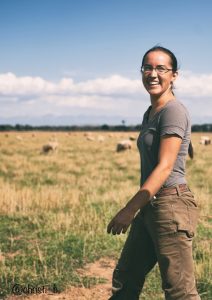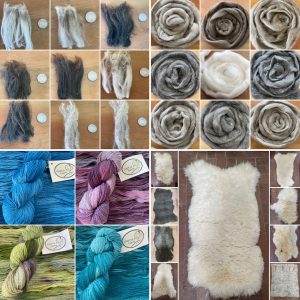

Elena Miller Ter-Kuile is a sixth-generation farmer living in southern Colorado. At Cactus Hill Farm she and her father raise sheep for wool, grass-fed meat and organic grain and hay––practices held by her grandfather and generations before him. But over the years sheep herding faded away. Now she’s returning to these traditions, and along the way restoring her family’s damaged land.
She speaks about government efforts made in the 1970s in the name of “efficiency” that ultimately degraded the land, such as straightening rivers, which led to erosion and damaged water quality. She asks us to look beyond the immediate to see that sometimes what seem like “inefficiencies” have fed a much larger and more sustainable ecosystem.
On her land, Elena still grapples with contamination from nearby mining efforts and spills. Her first restoration efforts have focused on cleaning the river by creating wetlands and planting trees. She also uses her sheep to help fertilize the land and bring back topsoil, which had disappeared over the years. Those efforts are already promising; the organic matter in one field has increased from 1% to 3.6%. She praises government grants that have allowed so many farmers to restore damaged land, but asks us all to maintain a longer view on how to farm and ranch. Upscaling and growth are not her goals, but rather creating an integrated, sustainable ecosystem, and a thriving business. Much of this knowledge already exists in traditional cultures and we could benefit by humbling ourselves to hear and learn some of these lessons.



Subscribe:
Apple Podcasts
Spotify